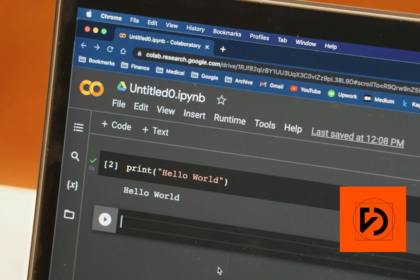Future Trends in Web Application Development in 2024/5
Web applications play a crucial role in the daily lives of internet users. Year by year, we observe dynamic development of technologies that enable the creation of more advanced and efficient applications. In 2024, we expect this trend to continue, with even greater emphasis on optimization, functionality, and user interface.
In this article, we will look at the latest trends that will shape the future of web application development. We will discuss technologies that will gain significance and best practices that will allow designing more engaging and responsive web applications.
As technology evolves, the demand for applications that are not only functional but also intuitive and fast grows. Therefore, it is crucial to understand how future trends may impact the web application creation process and what innovations we can expect in the coming years.
Accelerated Mobile Pages (AMP): Faster Page Loading
One of the most important trends in 2024 will be the further optimization of page loading speed, especially on mobile devices. Accelerated Mobile Pages (AMP) is a technology that enables the creation of web pages with simplified structures, allowing them to load faster. AMP is a response to the growing user expectations for instant access to information.
Implementing AMP is relatively simple, and its effects are felt almost immediately. As a result, AMP-optimized pages achieve better search engine results and offer better user experiences. In 2024, we expect more and more companies to adopt this technology to provide users with fast and seamless access to content.
The simple construction and basic functions of AMP make pages not only faster but also more responsive. This allows users to enjoy smooth browsing on various devices, which is crucial in the mobile era.
Voice Search Optimization: The Future of Searching
Voice search is becoming increasingly popular thanks to the development of voice assistants such as Siri, Google Assistant, and Amazon Alexa. Optimizing content for voice search will be a key trend in 2024, as more and more users use this feature to quickly find the information they need.
Optimization for voice search requires a different approach than traditional SEO. Content must be more natural and conversational to answer specific questions posed by users. Additionally, pages must be optimized for fast loading and responsiveness to provide smooth experiences for mobile device users.
The growing popularity of voice search means that companies need to invest in technologies and strategies that enable them to effectively reach users using this form of search. In 2024, optimization for voice search will become an indispensable element of SEO strategy.
Integrating VR in Web Applications
Virtual reality (VR) is gaining popularity and finding increasingly wide applications in various sectors, including web application development. It is predicted that the VR market value will increase to 15.5 billion euros by 2022, demonstrating the enormous potential of this technology. In 2024, integrating VR into web applications will be one of the key trends.
VR allows creating more immersive and engaging experiences for users. With this technology, it is possible to design interactive applications that offer completely new possibilities in product presentation, education, or entertainment. Companies that decide to implement VR will be able to stand out from the competition and attract new users.
Integrating VR into web applications requires advanced skills and appropriate tools, but the benefits of implementing this technology are enormous. In 2024, we can expect VR to become a standard in many industries, offering users unforgettable experiences.
Progressive Web Apps (PWAs): A New Era of Web Applications
Progressive web apps (PWAs) are another trend that will gain significance in 2024. PWAs combine the advantages of native applications and traditional web pages, offering users fast loading, responsiveness, and offline capabilities. With these features, PWAs are becoming increasingly popular among companies and users.
Companies like Starbucks, Uber, and Pinterest have already implemented PWAs, which has allowed them to improve performance and increase user engagement. PWAs offer many benefits, such as easier updates, lower data usage, and better user experiences. In 2024, more and more companies will adopt this technology to provide their customers with the highest quality services.
Progressive web apps enable the creation of applications that are more accessible and functional. By integrating native app functions in the browser, PWAs offer users quick access to content and functions, even with a weak internet connection. This makes PWAs an ideal solution for modern users who expect reliability and performance.
AI Integrating Solutions: The Future of Web Applications
Artificial intelligence (AI) plays an increasingly significant role in web application development. The growing use of AI in various sectors, such as healthcare, banking, and commerce, shows the enormous potential of this technology. In 2024, integrating AI into web applications will be a key trend that will revolutionize how we use the internet.
AI-powered chatbots are becoming increasingly popular, offering users quick and efficient support. With AI, many processes can be automated, increasing efficiency and reducing costs. Additionally, AI enables content and service personalization, leading to better user engagement.
In 2024, we can expect AI to become increasingly integrated with web applications, offering users even more advanced and interactive experiences. Integrating artificial intelligence allows creating applications that are more responsive, intuitive, and tailored to individual user needs.
Serverless Architecture: A New Standard in Application Development
Serverless architecture is another trend gaining popularity among web application developers. The growing popularity of this approach results from numerous benefits, including the lack of server management, increased scalability, and performance. In 2024, serverless architecture will become even more widespread.
Serverless enables developers to focus on code and functionality without worrying about infrastructure. This makes the application development process faster and more efficient. Companies can quickly implement new features and updates, better adapting to market and user needs.
The benefits of not needing to manage servers also include cost reduction and increased application reliability and security. In 2024, serverless architecture will be a key element of web application development strategies, opening new possibilities for developers and users.
Mobile-First: Prioritizing Mobile Approach
In the era of the growing popularity of mobile devices, a mobile-first approach is becoming a priority in web application development. Designing with mobile users in mind is not just a trend but a necessity to ensure responsiveness and performance on various devices. In 2024, mobile-first will continue to dominate as a strategy in creating web applications.
The benefits of responsive design and mobile features are enormous. Users expect a smooth and intuitive experience, regardless of the device they use to access the application. Mobile-first allows optimizing the user interface and functionality, translating into higher user engagement and satisfaction.
In 2024, the mobile-first approach will be even more important, especially with the growing number of users accessing the internet on mobile devices. Web application developers must therefore focus on designing with mobility in mind to meet the expectations of modern users.
API-First Approach: Efficiency in Application Development
The API-First Approach assumes creating APIs before starting work on the application. This allows for faster and cheaper application development, which is crucial in a dynamically changing technological environment. In 2024, the API-First approach will gain popularity, offering new possibilities for web application developers.
API-First enables better integration with various systems and platforms, translating into greater flexibility and scalability of applications. This allows companies to quickly respond to changing market and user needs by introducing new features and improvements. The popularity of the API-First approach is growing because it allows for more efficient resource and process management.
In 2024, we can expect API-First to become a standard in web application development, offering benefits such as shortened implementation times and improved application quality and performance. This allows developers to focus on delivering valuable solutions for users.
Cyber Security: Securing Web Applications
With the increasing number of cyberattacks and threats, securing web applications becomes a priority for companies and developers. Protecting data from cyberattacks is a crucial aspect that cannot be overlooked in the application development process. In 2024, cybersecurity will be even more important as threats become more advanced.
The growing importance of security in web application development results from the need to protect personal data and ensure user privacy. Companies must invest in advanced technologies and strategies that provide protection against attacks and data breaches. In 2024, we can expect cybersecurity to become an integral part of every web application development strategy.
A key element of cybersecurity is education and awareness. Developers must stay up to date with the latest threats and protection technologies to effectively secure their applications. In 2024, cybersecurity will continue to evolve, offering new tools and solutions to help protect user data and privacy.














